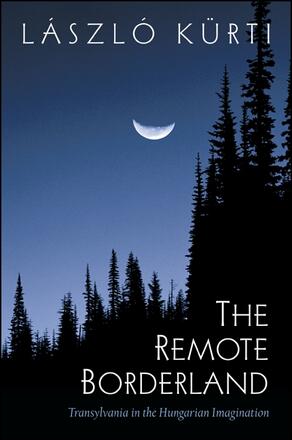
The Remote Borderland
Transylvania in the Hungarian Imagination
Alternative formats available from:
Explores how Transylvania figures in the Hungarian imagination and how this border region functions in the creation of national identity.
Description
The Remote Borderland explores the significance of the contested region of Transylvania to the creation of Hungarian national identity. Author László Kürti illustrates the process by which European intellectuals, politicians, and artists locate their nation's territory, embody it with meaning, and reassert its importance at various historical junctures. The book's discussion of the contested and negotiated nature of nationality in its East Central European setting reveals cultural assumptions profoundly mortgaged to twentieth-century notions of home, nation, state, and people. The Remote Borderland shows that it is not only important to recognize that nations are imagined, but to note how and where they are imagined in order to truly understand the transformation of European societies during the twentieth century.
László Kürti is professor of Political Science at the University of Miskolc, Hungary. He is the coeditor, with Juliet Langman, of Beyond Borders: Remaking Cultural Identities in the New East and Central Europe.
Reviews
"The most impressive aspect of this book is the very extensive field work that Kürti carried out in Hungary and Transylvania in the 1980s and 1990s. He relates not only what he learned about life in both places, before and after the collapse of communism, but also tells the story of how he experienced these changing political circumstances and how it affected his work. This is gripping stuff. Moreover, his reporting includes not only the standard stuff of ethnography, what was going on in people's lives while he was there, but also what was happening politically and in popular culture that influenced how people understood their circumstances. Tales of political actions, news reporting, an 'underground' youth culture, and the musings of literary figures are all grist for Kürti's mill." — John W. Cole, University of Massachusetts, Amherst
"The Remote Borderland lays out very intelligently a theoretical and historical problematization of Transylvanian identity from the standpoint of Hungarian and Romanian elites. It contextualizes the historical development of Transylvania as both a remote and border region within the relevant scholarship on pre and postcommunist East Europe. By so doing Kürti seeks to provoke a series of questions about the ambiguous links between nation, state, and territory—questions that have potentially broad comparative significance for anthropologists, sociologists, historians, and political scientists." — Douglas R. Holmes, author of Cultural Disenchantments: Worker Peasantries in Northern Italy